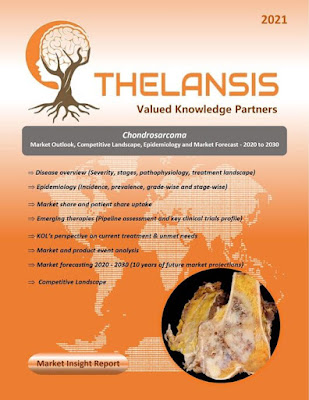Chronic Spontaneous Urticaria (CSU) – Market Outlook, Epidemiology, Competitive Landscape, and Market Forecast Report – 2023 To 2033
Chronic spontaneous urticaria (CSU) also called chronic idiopathic urticarial is characterized by the occurrence of urticaria for 6 weeks or longer without identifiable specific triggers. The average duration of CSU is frequently reported as 5 years, but maybe longer in more severe cases specifically, in patients with concurrent angioedema. Patients with chronic urticaria (used as a proxy for CSU) experience the substantial health-related quality of life (HRQoL) and productivity impairments and increased psychological comorbidities relative to patients without chronic urticarial. CSU is the spontaneous development of signs and symptoms with no known specific trigger. CSU and CIndU may coexist in the same patient. Overall urticaria is classified as acute or chronic form based on the duration of illness. Chronic urticaria is diagnosed when the disease has been continuously or intermittently present for at least 6 weeks. The chronic and acute forms of urticaria differ in etiology, pathophysiology, and the underlying mechanism.
·
The prevalence of chronic spontaneous
urticaria (CSU) was estimated to be 0.75% to 1.02% cases within adults,
however, ~ 30% to 55% of patients are diagnosed and symptomatic. 10% to 15% of
patients are being diagnosed with mild, 29% to 31% of patients are being
diagnosed with moderate and 27% to 29% patients are being diagnosed with a
severe type of CSU.
Thelansis’s
“Chronic Spontaneous Urticaria (CSU) Market Outlook, Epidemiology, Competitive
Landscape, and Market Forecast Report – 2023 To 2033" covers disease
overview, epidemiology, drug utilization, prescription share analysis,
competitive landscape, clinical practice, regulatory landscape, patient share,
market uptake, market forecast, and key market insights under the potential Chronic
Spontaneous Urticaria (CSU) treatment modalities options for eight major
markets (USA, Germany, France, Italy, Spain, UK, Japan, and China).
KOLs insights of Chronic Spontaneous
Urticaria (CSU) across 8 MM market from the centre of Excellence/ Public/
Private hospitals participated in the study. Insights around current treatment
landscape, epidemiology, clinical characteristics, future treatment paradigm,
and Unmet needs.
Chronic
Spontaneous Urticaria (CSU) Market Forecast Patient Based Forecast Model (MS.
Excel Based Automated Dashboard), which Data Inputs with sourcing, Market
Event, and Product Event, Country specific Forecast Model, Market uptake and
patient share uptake, Attribute Analysis, Analog Analysis, Disease burden, and
pricing scenario, Summary, and Insights.
Thelansis Competitive Intelligence (CI) practice
has been established based on a deep understanding of the pharma/biotech
business environment to provide an optimized support system to all levels of
the decision-making process. It enables business leaders in forward-thinking
and proactive decision-making. Thelansis supports scientific and commercial
teams in seamless CI support by creating an AI/ ML-based technology-driven
platform that manages the data flow from primary and secondary sources.
Tags: Chronic
Spontaneous Urticaria (CSU), Chronic Spontaneous Urticaria (CSU) market outlook, Chronic Spontaneous Urticaria (CSU) competitive landscape, Chronic Spontaneous Urticaria
(CSU) market forecast, Thelansis, Primary market
research, KOL insights, Competitive Intelligence (CI)



Comments
Post a Comment